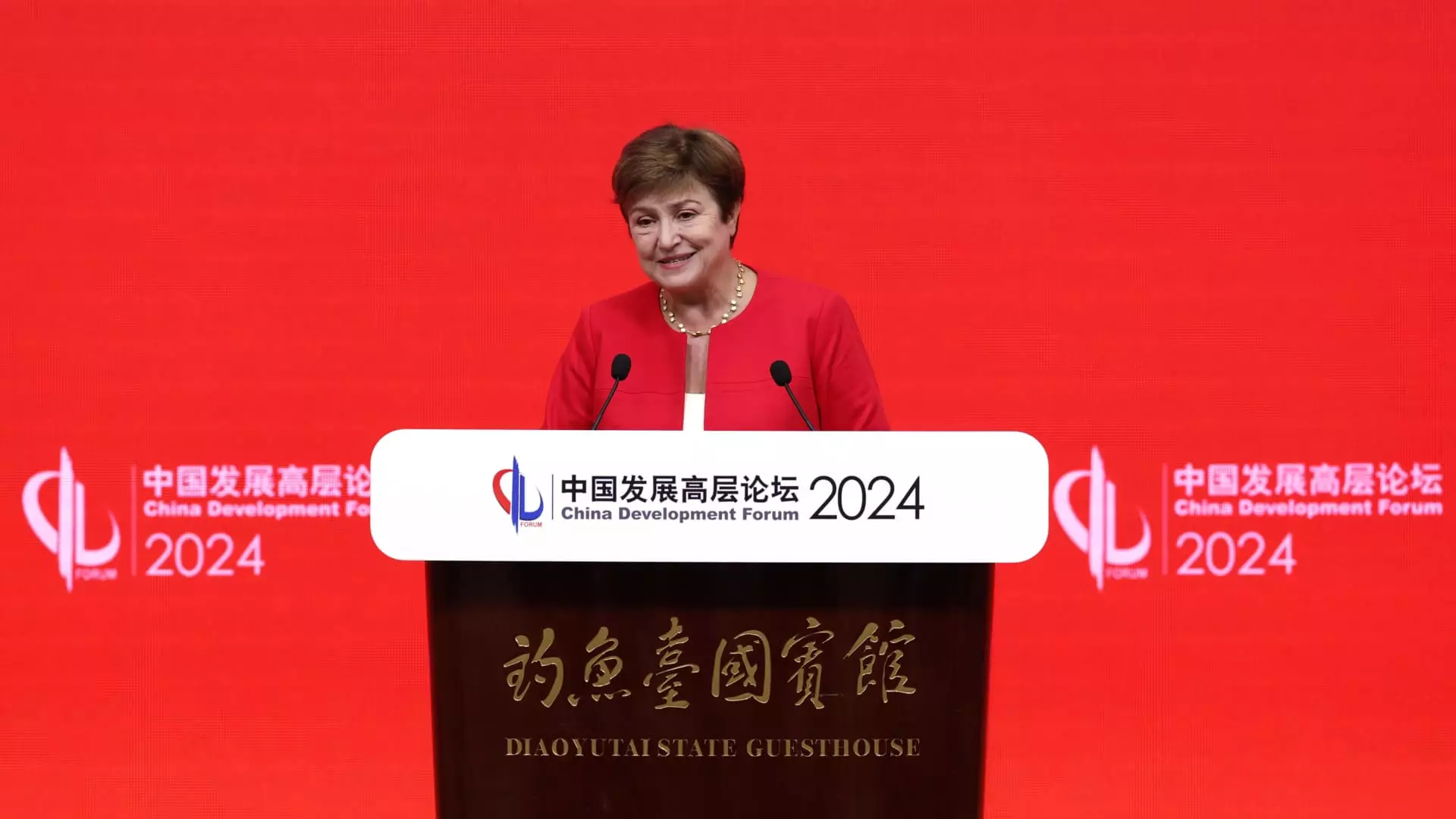China is currently facing a critical decision regarding its economic policies, as stated by the Managing Director of the International Monetary Fund, Kristalina Georgieva. She emphasized that China has two options: either revert to its previous economic strategies or opt for reforms that will stimulate growth. Georgieva suggested that by implementing a comprehensive package of pro-market reforms, China could experience significantly faster growth compared to maintaining the status quo. This reform could potentially lead to a 20% expansion in the real economy over the next 15 years, equivalent to adding a staggering US$3.5 trillion to the Chinese economy.
Despite witnessing a post-Covid rebound with growth exceeding 5% in 2023, China is still grappling with challenges such as low productivity growth and an aging population. Georgieva highlighted the need for China to address these issues through structural reforms in order to achieve sustained high-quality growth. While the country continues to be a major contributor to global economic growth, she stressed the importance of adapting to the evolving economic landscape.
Chinese Premier Li Qiang, during the China Development Forum, pledged to promote high-quality development by intensifying macro-policy adjustments and expanding domestic demand. He also emphasized the importance of a higher level of openness to address the challenges facing the Chinese economy. Additionally, the Chinese government committed to providing further protection to foreign-funded firms in response to dwindling overseas investment flows into the country.
The Chinese government has set a growth target of about 5% for this year, acknowledging the difficulties posed by overcapacity and price pressures amidst a property and debt crisis. Georgieva stressed the necessity of structural reforms to boost growth and enhance domestic consumption and confidence. The IMF projected a 4.6% growth rate for China’s economy in 2024, while also cautioning about the ongoing struggles in the real estate sector.
Georgieva outlined the most pressing near-term challenges for China, which include transitioning the property sector to a more sustainable footing and reducing risks associated with local government debt. She urged China to take decisive steps to resolve issues in the property sector, such as completing unfinished housing projects left by bankrupt developers. By addressing these challenges, China could improve consumer and investor confidence and accelerate the resolution of property sector problems.
China stands at a crucial crossroads where it must make strategic decisions to propel economic growth and development. By embracing reforms, promoting high-quality development, and addressing key challenges, China can position itself for sustainable and robust economic growth in the long run. The choices made today will shape the trajectory of China’s economy for years to come, highlighting the importance of proactive and decisive actions to navigate the complexities of the global economic landscape.

